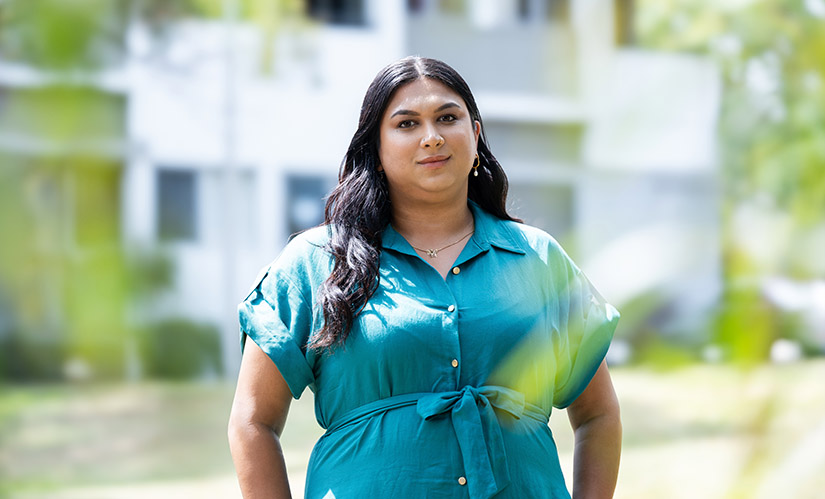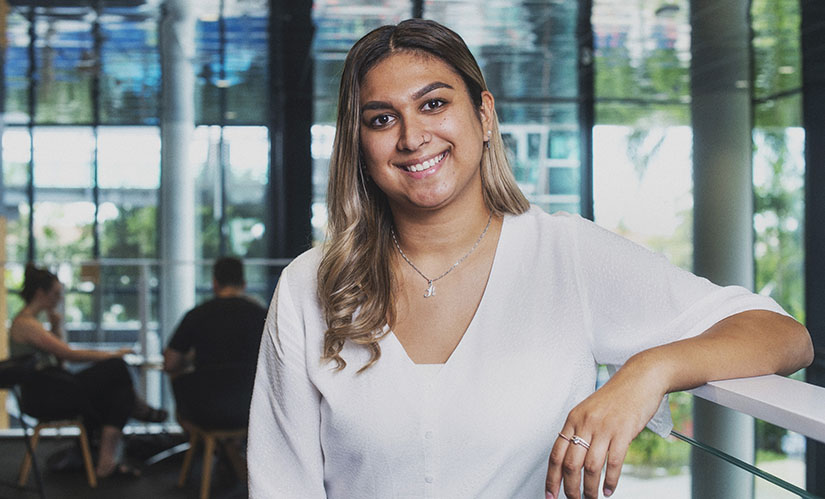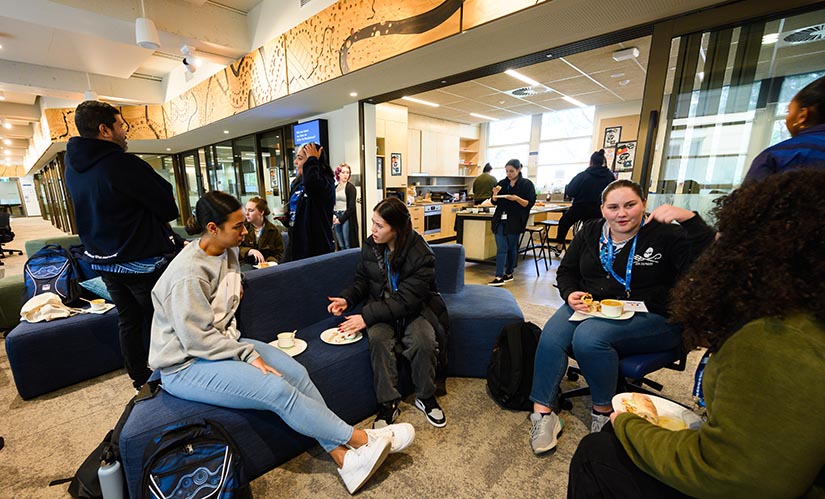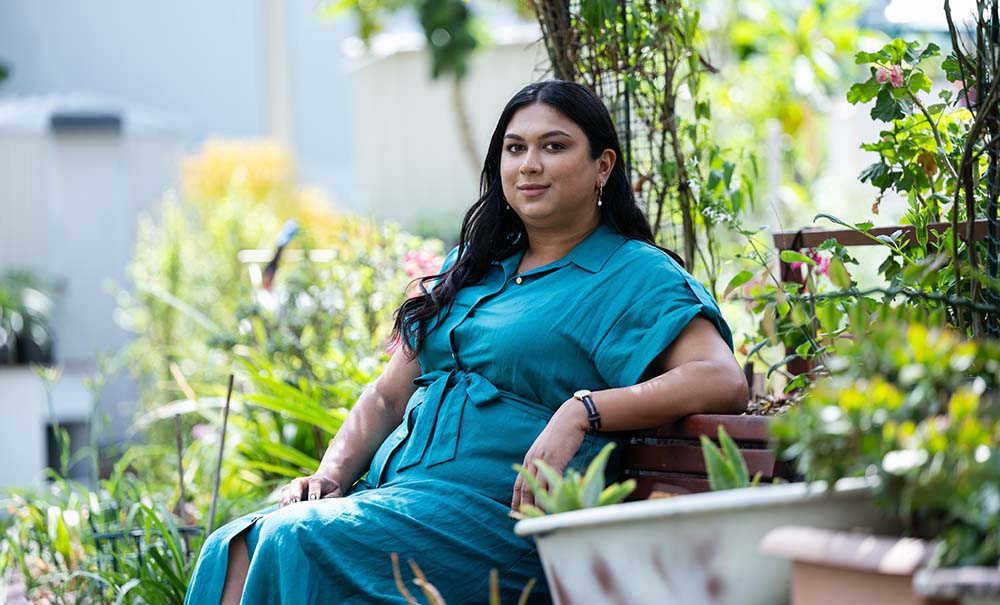
Karyna Doolan, 24 October, 2023
Social work graduate Karyna Doolan advocates for individuals and families, and supports them to overcome adversity.
Find out:
- What social workers do
- The best part of being a social worker
- What it's like studying social work at QUT.
As a social worker, I am determined to be a trailblazer and to advocate for people to ensure they can experience things in life that may be very easily accessible and familiar for others.
Why did you study the Bachelor of Social Work?
Growing up, I experienced and saw many of those close to me struggle with complex issues, some of which they had no control over. I was privileged enough to overcome these adversities and grow through what I went through. It has made me an empathetic person with the compassion and understanding to walk alongside those at their most vulnerable time. To see people for who they are or can be rather than judge them on what they are or have gone through.

What do social workers do?
I am a Child and Family Practitioner working within an Intensive Family Support team. The organisation I work with supports families with children who are at high risk of entering the child protection system.
I assist families with multiple complex needs, to develop their own goals and together we plan attainable actions steps for each goal. We then work with the families to achieve these goals for up to nine months. The role requires me to network with other stakeholders and to use a strengths-based approach to assist families to achieve their goals. As a team, we hope that families leave our service with a positive support system and the confidence and capacity to safely care for and protect their children.
How can you make a difference as a social worker?
There are many contemporary issues that impact the support I can provide to individuals, families, and communities. This includes the rising cost of living, lack of funding and inaccessibility of certain supports.

The biggest challenge we are finding within Intensive Family Support is the children, young people, and adults we work alongside have intellectual and/or cognitive difficulties and require a diagnosis to be eligible for the National Disability Insurance Scheme (NDIS) but cannot afford an assessment. This causes compounding complex issues such as school refusal, decline in social skills, decline in mental health for carer and child, carer burnout, financial stress, education delays and strain on household relationships.
I believe the worst thing you can do is set up a family for failure through unattainable goals due to issues outside of the individual or family’s control. To combat this I make an attainable plan around goals that can be achieved and advocated for. I assist with growing the individual or family’s formal and informal network, so that they have many people that can offer supports. This provides people with lifelong skills and confidence to continue to preserve through adversity that the individual or service cannot control.
In the future I would love to support families during this difficult time in their lives by advocating for assessments to be free or subsidised for those struggling financially. This would allow individuals with the most need, to access necessary professional supports through an NDIS plan to ensure they have an equitable future.
What is best part of a career in social work?
What I enjoy most about my role is being able to identify strengths in individuals and families through tough times, where they may be lacking confidence in themselves. I do not believe that I am there to “help others” rather that I am there to walk alongside a person until they have the confidence to navigate things on their own.
The biggest impact I can make in a community is by displaying compassion, understanding and confidence in their ability to achieve their goals. As well as providing them with information, services, and necessary skills, so they are equipped if they face the same challenges again. I love seeing individuals and families flourish and knowing that once I step away, they can progress to meet their full potential.

How did QUT support you while you were studying?
QUT supported my cultural growth through their Oodgeroo Unit which supports First Nations students. It allowed me to feel learn in a safe space and develop as an individual and professional. The Oodgeroo Unit provided me with information around the Career Trackers Internship which I completed throughout my degree.

How did practical placements help you gain experience?
I was grateful to gain key knowledge and development through my internship at Child Safety. This practical experience not only enhanced my skill set but also expanded my industry connections. It is through these connections, experience, and the practical and theoretical balance that QUT offered, that I was able to secure a role within an Intensive Family Support team.

What advice would you give to someone thinking about studying social work?
QUT’s social work degree understands that if you want to work with vulnerable individuals or communities that you must have a good understanding of yourself. It has a focus on self-development through unpacking your own beliefs and biases. This degree has allowed me to have so many great opportunities and I am certain that it will allow me to get me to where I want to be.
